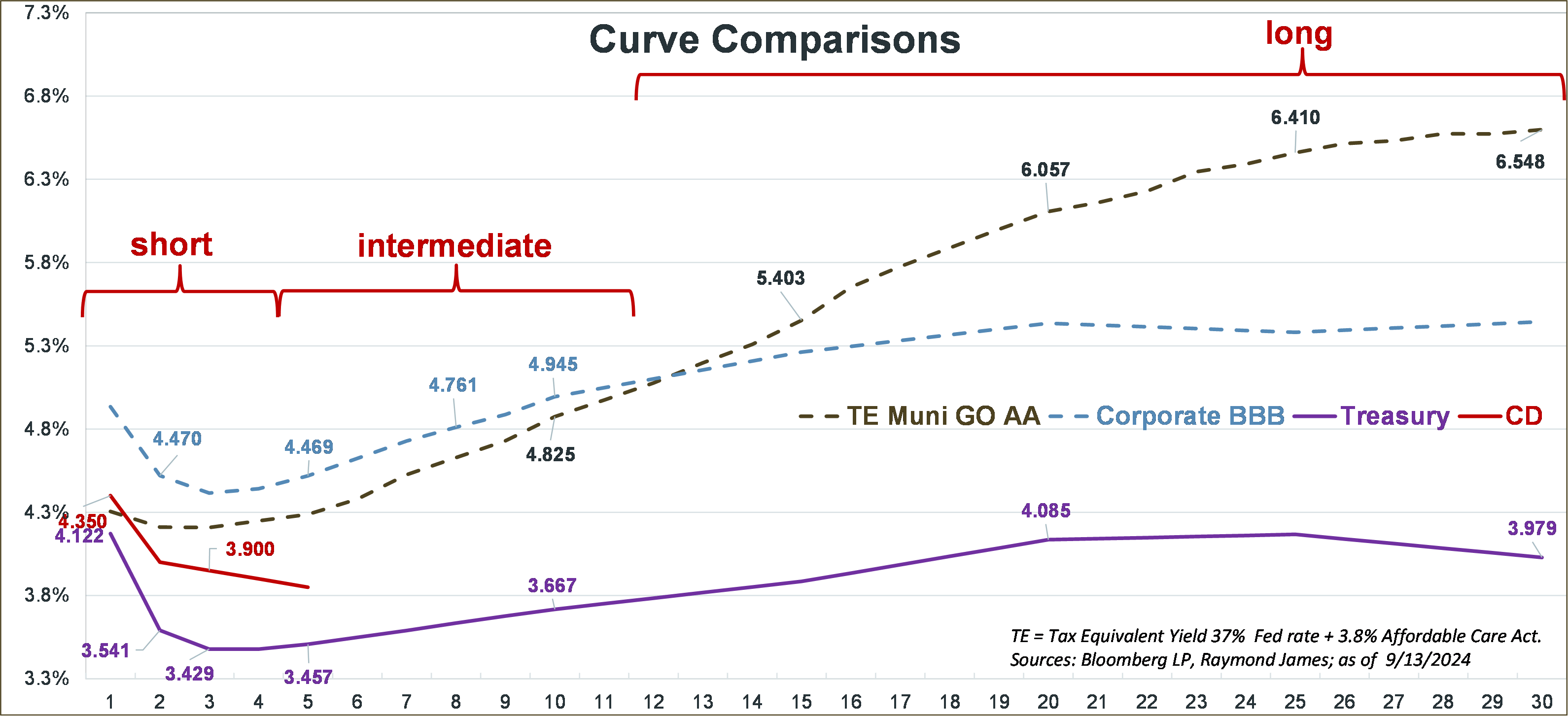Fixed Income is a long-term strategy
- 09.16.24
- Markets & Investing
- Commentary
Doug Drabik discusses fixed income market conditions and offers insight for bond investors.
It is easy to get drawn into the excitement, anticipation, and mystery of an upcoming event. Whether it is positive or negative, inquisitiveness demands our attention. Pandemics or catastrophes demand airwave time just the same as championships or accomplishments. The thrill of the financial markets and the media attention they garner can capture investor attention alike. Buying a speculative stock and hoping for a quick payoff is an understandable euphoria, but whether it is a practical long-term strategy may be debatable. Financial shortcuts to these ends may lack the capacity to meet long term financial goals.
This week, the Federal Open Market Committee (FOMC) meets on Tuesday and Wednesday. Financial curiosity-seekers are glued to the event and ready to debate whether the committee will cut Fed Funds by 25 basis points (bp) or 50bp. My question to you is, “Does it matter?” The ballyhoo surrounding these isolated announcements has become seemingly obsessive. The Fed exists with two mandates: to maintain stable pricing and maximize employment. Thus, their internal struggle. Swelling prices have kept inflation elevated and kept the Fed from dropping rates too soon. Yet, recent cracks in the economy and slowing employment data have raised rhetoric for cutting rates.
Investors can become anxious when they are attempting to time the market. Should I wait for the Fed to move? Should I keep reaping the benefits of high short-term rates? Should I sell? Buy? Swap out of current holdings? The reality is that most investors buy fixed income allocations to preserve wealth, not speculate on future returns. Many fixed income allocations are not seeking total returns but rather are held to preserve wealth, provide designed cash flows, and contribute as much income as the market allows at the time of investment. Timing the market and attempting to benefit from price appreciation is what many investors do with stocks and other growth assets.
The current market affords investors an opportunity to lock into 4% or better yields, a historically satisfying level of income. Investors with strategies compliant with this level of income can lock into this rate for longer, thus satisfying long-term strategy while ignoring short-term market noise. Don’t lose sight of locking into a known level of income and cash flow at the expense of uncertain market speculation.
The author of this material is a Trader in the Fixed Income Department of Raymond James & Associates (RJA), and is not an Analyst. Any opinions expressed may differ from opinions expressed by other departments of RJA, including our Equity Research Department, and are subject to change without notice. The data and information contained herein was obtained from sources considered to be reliable, but RJA does not guarantee its accuracy and/or completeness. Neither the information nor any opinions expressed constitute a solicitation for the purchase or sale of any security referred to herein. This material may include analysis of sectors, securities and/or derivatives that RJA may have positions, long or short, held proprietarily. RJA or its affiliates may execute transactions which may not be consistent with the report’s conclusions. RJA may also have performed investment banking services for the issuers of such securities. Investors should discuss the risks inherent in bonds with their Raymond James Financial Advisor. Risks include, but are not limited to, changes in interest rates, liquidity, credit quality, volatility, and duration. Past performance is no assurance of future results.
Investment products are: not deposits, not FDIC/NCUA insured, not insured by any government agency, not bank guaranteed, subject to risk and may lose value.
To learn more about the risks and rewards of investing in fixed income, access the Financial Industry Regulatory Authority’s website at finra.org/investors/learn-to-invest/types-investments/bonds and the Municipal Securities Rulemaking Board’s (MSRB) Electronic Municipal Market Access System (EMMA) at emma.msrb.org.



